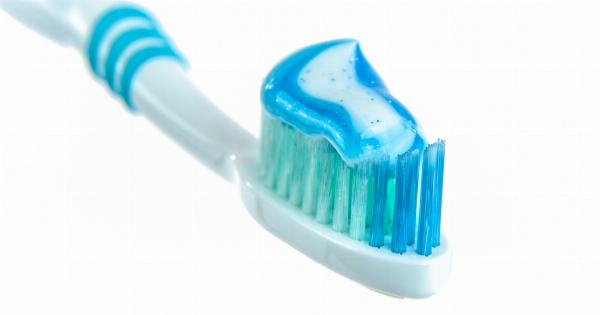Oral hygiene plays a vital role in maintaining a healthy smile and preventing various dental problems. Brushing your teeth, flossing, and visiting a dentist regularly are all fundamental aspects of maintaining good oral health.
To shed more light on this topic, we turned to a dental professor who shared invaluable advice on dental care.
Brushing and Flossing Techniques that Matter
The dental professor emphasized the significance of proper brushing techniques. To ensure effective cleaning, the professor recommended using a soft-bristled toothbrush and fluoride toothpaste.
Brushing should be performed at least twice a day, for two minutes each time.
Flossing is another crucial step that should not be overlooked. The professor advised using a gentle back-and-forth motion, sliding the floss between the teeth and under the gum line.
It is essential to floss once a day to remove plaque and food particles from areas that a toothbrush cannot reach.
The Role of Diet in Oral Health
Our diet plays a significant role in oral health. The professor stressed the importance of avoiding sugary and acidic foods and drinks as they contribute to tooth decay and erosion.
Instead, the professor recommended incorporating a well-balanced diet rich in fruits, vegetables, lean proteins, and whole grains.
Furthermore, it is advisable to limit snacking between meals, as frequent snacking can lead to an increased risk of cavities.
Drinking plenty of water throughout the day is also beneficial for oral health, as it helps rinse away food particles and keep the mouth hydrated.
Common Dental Concerns
The dental professor addressed some common dental concerns and provided useful tips to prevent and manage them:.
1. Tooth Decay
Tooth decay, also known as dental caries, is one of the most prevalent dental problems. The professor emphasized the importance of regular dental check-ups to detect and treat tooth decay in its early stages.
Additionally, maintaining proper oral hygiene through brushing, flossing, and a healthy diet is essential for preventing tooth decay.
2. Gum Disease
Gum disease, also called periodontal disease, is a condition that affects the gums and supporting structures of the teeth. The professor advised maintaining good oral hygiene practices, such as proper brushing and flossing, to prevent gum disease.
Regular dental cleanings and check-ups play a crucial role in early detection and treatment.
3. Bad Breath
Bad breath, or halitosis, can have various causes, including poor oral hygiene, gum disease, dry mouth, and certain foods.
The professor emphasized the importance of brushing the tongue and using mouthwash to eliminate bacteria that contribute to bad breath. Maintaining good oral hygiene and addressing any underlying dental issues can help combat bad breath.
4. Teeth Sensitivity
Tooth sensitivity can be caused by various factors, such as tooth decay, gum recession, or enamel erosion. The professor advised using desensitizing toothpaste and opting for a soft-bristled toothbrush.
Avoiding acidic foods and beverages also helps alleviate tooth sensitivity. If the sensitivity persists, it is advisable to consult a dentist for further evaluation.
The Importance of Regular Dental Visits
The dental professor emphasized the significance of regular dental visits, ideally every six months. These visits allow the dentist to assess the overall oral health, detect any dental problems in their early stages, and provide appropriate treatments.
During a dental check-up, the dentist performs a thorough examination, which may include X-rays to assess the condition of teeth, gums, and bones.
Professional cleaning, also known as prophylaxis, is typically performed to remove tartar buildup, plaque, and stains.
In addition to addressing existing dental concerns, the dentist may provide personalized advice on oral hygiene practices, diet, and any necessary treatment plans.
Regular dental visits significantly contribute to maintaining a healthy smile and preventing future dental problems.
The Impact of Oral Health on Overall Well-being
Oral health is closely linked to overall well-being. The dental professor highlighted several key aspects:.
1. Cardiovascular Health
Poor oral health has been associated with an increased risk of cardiovascular diseases such as heart disease and stroke. Maintaining good oral hygiene, along with a healthy lifestyle, can contribute to better cardiovascular health.
2. Respiratory Health
Poor oral health can also impact respiratory health. Bacteria from the mouth can be inhaled into the lungs, potentially leading to respiratory infections, pneumonia, and other respiratory issues.
3. Diabetes Management
Individuals with diabetes are at a higher risk of developing oral health problems. Conversely, poor oral health can make it more challenging to control blood sugar levels in individuals with diabetes.
The dental professor emphasized the importance of managing both dental and systemic health in individuals with diabetes.
4. Pregnancy
Oral health is particularly crucial during pregnancy. Hormonal changes during pregnancy can increase the risk of gum disease and tooth decay. The professor recommended maintaining proper oral hygiene and seeking regular dental care during pregnancy.
Overall, maintaining good oral hygiene and seeking regular dental care are essential for promoting overall well-being and preventing various health issues.





























